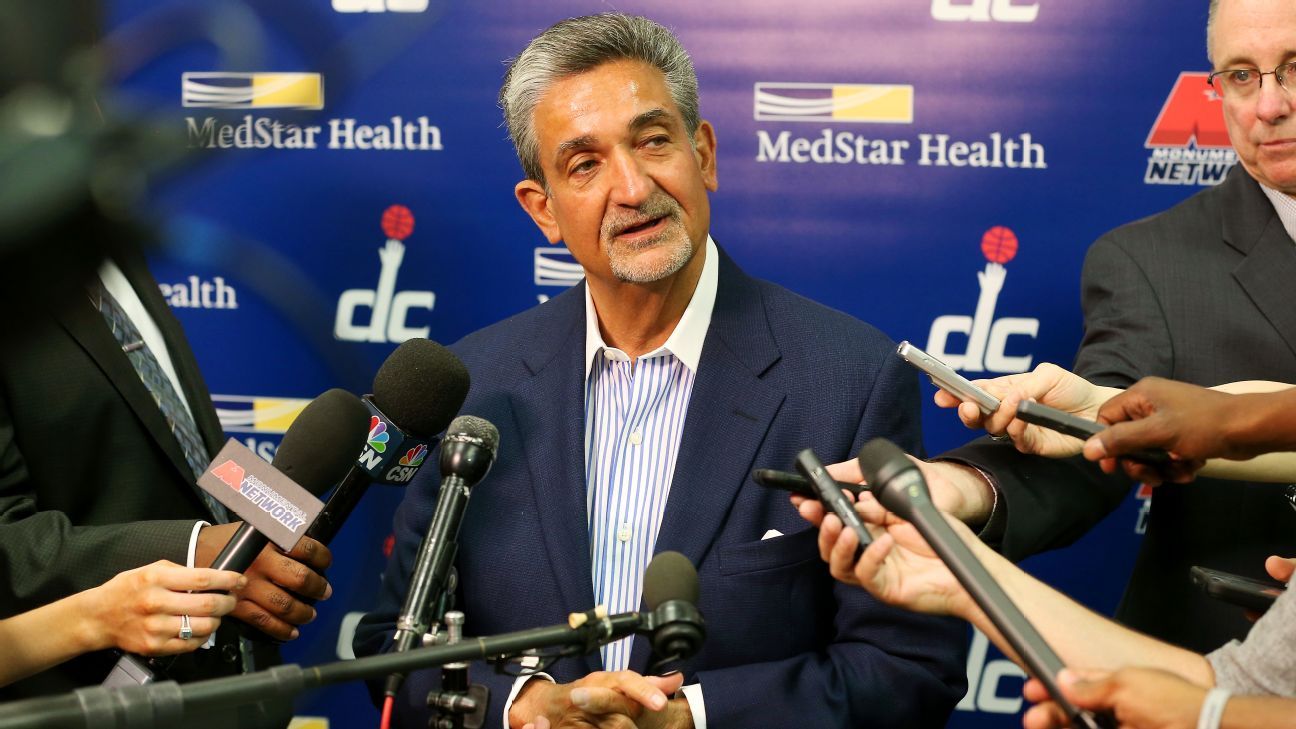
RICHMOND, Va. — Influential labor groups announced Tuesday they are opposing efforts to move the NBA’s Washington Wizards and NHL’s Washington Captials from the nation’s capital to northern Virginia, citing in part an apparent inability to reach a satisfactory deal for union workers on the construction projects.
The opposition of the Northern Virginia AFL-CIO and member unions including UNITE HERE Local 25, which represents hospitality workers in the national capital region, creates another hurdle for Virginia Gov. Glenn Youngkin and supporters of a proposed $2 billion deal to move the two franchises from Washington, D.C., to Alexandria.
Youngkin, a Republican, responded to Tuesday’s news by saying labor leaders had “backtracked” on negotiations carried out over months in “good faith.” He vowed to press forward with the proposal.
“Virginia is a right-to-work state and unreasonable demands from union leaders will not derail this project. I will continue to work with the General Assembly to complete this opportunity and bring $12 billion in economic contributions that will fund shared priorities in Virginia,” he said in a written statement.
The governor was already facing obstacles in the Democratic-controlled Legislature, particularly in the state Senate, where he has so far been unable to convince leaders to advance a bill underpinning the deal.
The House of Delegates has passed its version of the legislation necessary for the relocation to go forward. But Democratic leaders from both chambers have made clear they wanted labor’s voice heard in the negotiations over the deal. Talks have grown to encompass a range of unrelated Democratic priorities, from toll relief in the Hampton Roads region to education funding.
The House of Delegates has passed its version of the legislation necessary for the relocation to go forward. But Democratic leaders from both chambers have made clear they wanted labor’s voice heard in the negotiations over the deal, which have grown to encompass a range of unrelated Democratic priorities.
Senate Majority Leader Scott Surovell — who sponsored his chamber’s version of the bill without fully endorsing the project — said labor’s opposition won’t make it any easier to get the legislation across the finish line. But he stopped short of saying the matter was dead and laid blame with Youngkin for the impasse, saying he’d personally been working to get this piece of the puzzle solved since before the legislative session.
Democratic Del. Luke Torian, who is carrying the House version of the legislation, said that he had not personally spoken yet with anyone from the AFL-CIO.
House Speaker Don Scott didn’t respond to a phone call seeking comment but told The Washington Post the unions’ opposition was important.
“If they’re against it, then the arena deal is probably going to have a very difficult time,” he told the newspaper. “If it dies, it dies.”
The AFL-CIO says it tried to reach a deal with JBG Smith, the real estate developer on the Potomac Yard parcel in Alexandria where the arena would be built, and financial adviser J.P. Morgan to enter into a project labor agreement that would ensure organized labor is used to build the facility. It also sought a labor peace agreement to help ensure that workers at a proposed hotel that is part of the project would be able to unionize.
“To date, there’s been no interest at all on the part of this developer to consider signing agreements that would protect the rights of workers,” Virginia Diamond, president of the Northern Virginia AFL-CIO, said in an interview.
Diamond did say there had been more fruitful conversations about a possible memorandum of understanding involving the proposed stadium authority that would issue bonds to help finance the project. But that MOU, also intended to provide job protections, would cover only the publicly owned part of the project and falls far short of the AFL-CIO’s other clear requests.
In a written statement, Greg Akerman, president of the local Building Trades Unions, said, “Wage theft and exploitation of immigrant workers are common on construction sites in northern Virginia. The developers of this entertainment district have refused to take the necessary steps to prevent this.”
JBG Smith and the teams’ parent company, Monumental Sports and Entertainment, said in a joint statement that they were “disappointed and somewhat perplexed” at the AFL-CIO’s announcement.
“During near daily negotiations over the course of several months, this development partnership gave labor nearly everything it asked for including strong wages, benefits, and training commitments, as well as efforts to prevent wage theft and misclassification. Our discussions went farther to specifically promote local hiring and opportunity for small, women, minority, and veteran-owned businesses.”
Youngkin and Ted Leonsis, the founder and CEO of Monumental, announced plans in December to move the teams across the Potomac River to a parcel of land near Reagan National Airport, Amazon’s new headquarters, and a new Virginia Tech graduate campus.
The move would bring Virginia its first major pro sports franchises. But the deal has faced criticism from Alexandria residents concerned about traffic, and from D.C. officials who fear the loss of the team will devastate downtown Washington.
Others have questioned the economic wisdom of subsidizing a billionaire team owner and millionaire athletes, but proponents of the deal say it is structured in a way that the tax revenue generated by the project will more than pay for itself and provide a windfall that will boost state and local budgets.
News of the unions’ decision was quickly highlighted by the Coalition to Stop the Arena at Potomac Yard, another group of critics of the proposal, which called on Youngkin and Assembly leaders to call off the deal.











